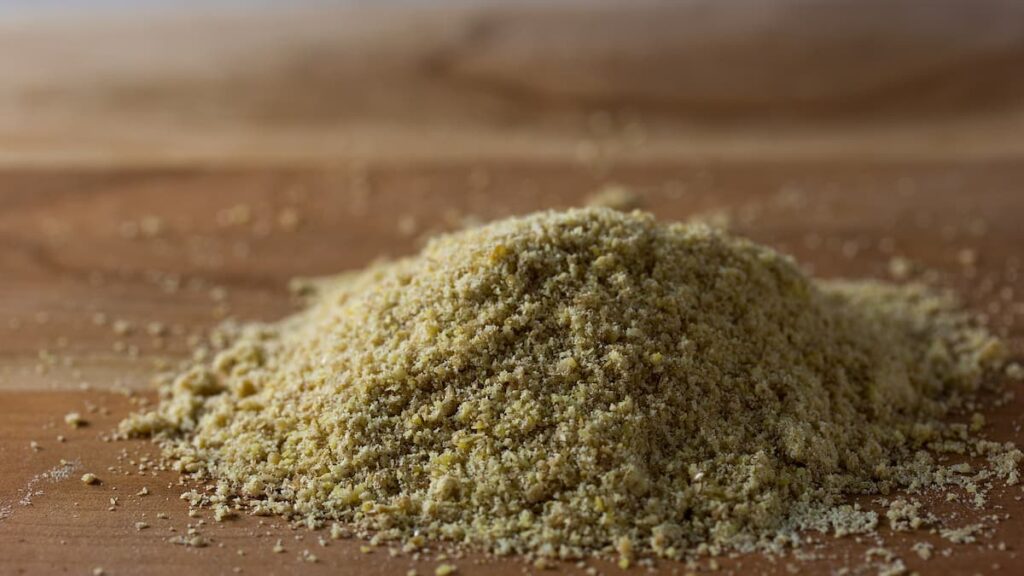Introduction
The Health Benefits of Flaxseed are many and its beneficial effects on hormone-dependent tumors make it a superfood. Also, it is one of the richest dietary sources of lignan precursor, the polyphenol compound that prevents many diseases, and omega-3 fatty acids that are essential for the healthy functions of the body. Moreover, the nutrition facts of Flaxseed make it a wonder food.
What is Flax Seed?
Flaxseed or Linseed is a seed from the flowering plant Flax, Linum usitatissimum, in the family Linaceae.
Though Flaxseed is a native of Egypt, it is widely cultivated in India, Russia, Holland, and many parts of the world. It is mainly cultivated for medicinal purposes and as a nutritional food. Hence, it is both food and medicine. Moreover, textiles for bedsheets, table cloths, and underclothes are made from Flax in western countries and are known as Linen.
Flax Seed Health Benefits
Flaxseed provides many health benefits that include the following.
Flaxseed has Anti-Inflammatory Benefits
Inflammation is a biological response of the immune system that is caused by a variety of factors like pathogens, damaged cells, toxic compounds, or irradiation. Though inflammation is essential for our survival and uncontrolled inflammation may result in chronic inflammatory diseases that include cardiac diseases, diabetes, arthritis, and cancer.
The dietary omega-6 is pro-inflammatory, whereas dietary omega-3 is anti-inflammatory. Both are essential fatty acids for the healthy functions of the body. However, the healthy ratio should be between 1 to 1 and 4 to 1.
Making Flaxseed a part of your diet helps to maintain a healthy ratio of fatty acids, decreases chronic inflammation, and prevents diseases. Just two tablespoons of flaxseed contain more than recommended daily value of omega-3 fatty acids.
Anti-Diabetic Functions
The health benefits of flaxseed include Anti-diabetic functions.
The effects of Flaxseed and Flax Lignan Complex improve glycemic control and hence, their positive effects on serum glucose levels have been established by many medical studies. Oxidative stress is implicated in both Type 1 and Type 2 diabetes. Many studies confirmed the potential of Secoisolariciresinol diglucoside SDG for reducing Type 1 diabetes and also for delaying the development of Type 2 diabetes in humans.
Furthermore, daily consumption of flaxseed decreases glucose and insulin as well as improves insulin sensitivity in overweight and obese individuals with prediabetes. (Andrea M. Hutchins et al., 2013).
However, a person who has well-controlled Type 2 diabetes may be afraid of including flaxseed in the diet which may lower his blood glucose level. A study by Carla G. Taylor et al., 2013 answers this concern by concluding that dietary milled flaxseed and flaxseed oil does not affect glycemic control in adults with well-controlled Type 2 diabetes. A similar study also concludes that high doses of flaxseed oil do not affect glycemic control in type 2 diabetes.
However, including flaxseed in your diet is not the sole reliable treatment. A possible treatment could be the intake of flaxseed along with the standard treatment of diet, exercise, and drugs.
Flaxseed Has Anti-oxidant Benefits
The significant health benefits of flaxseed come from its antioxidant properties.
Living Organisms produce Reactive Oxygen Species (ROS) or Oxidants as a result of normal cellular metabolism and environmental factors like cigarette smoke or other air pollutants. ROS are highly reactive molecules. They damage cell structures like proteins, carbohydrates, and lipids and alter their functions too. The shift in the balance between the oxidants and ant-oxidants in favor of oxidants is known as oxidative stress. It contributes to many pathological conditions like hypertension, atherosclerosis, diabetes, cancer, etc. Hence, the reduction of oxidative stress is vital for cell viability, activity, proliferation, and organ functions.
Anti-oxidants counterbalance the effects of oxidants. Therefore, foods that have anti-oxidant properties help to have good health. A study finds the hydrogen donating antioxidant activity of Flaxseed Lignans (Alhassane Touré, Xu Xueming. 2010).
Also, a study published in the Journal of Food Science of the Institute of Food Technology demonstrated the protective role of Flaxseed oil and Flaxseed lignan Secoisolariciresinol diglucoside (SDG) against oxidative stress in rats with metabolic syndrome.
Anti-Carcinogenic Benefits of Flaxseed
A study by Lilan. U Thomson et al., 1996 found that Flaxseed lignan and its oil components reduce mammary tumor growth at a late stage of carcinogenesis. The oil content is more effective at the stage when tumors have already been established. Whereas, the SDG is beneficial throughout the promotional phase.
Many epidemiological studies have confirmed the anticarcinogenic activity of the components of the flaxseed. The trials in the tumor cells in vitro and clinical trials in patients with hormone-dependent tumors proved this. Hence, these studies validate the preventive and curative use in hormone-dependent tumors (Matinchik AN and Zubtsov VV, 2012).
Moreover, there is evidence for the inhibitory effects of flaxseed in colon cancer. (Ref: Rickard-Bon, Sharon E., and Lilian U. Thompson. “The role of flaxseed lignans in hormone-dependent and independent cancer.” Flax: the genus Linum. Taylor and Francis. London, UK (2003): 181-203.)
Also, dietary Flaxseed is protective against Lung cancer.
Beneficial to Heart Health
Flaxseed Oil, protein, and fiber play a significant role in the prevention and treatment of heart diseases.
Atherosclerosis and hypertension are the major causes of heart diseases.
Atherosclerosis is a condition where the hardening and narrowing of arteries take place due to cholesterol plaques building up along the walls of the arteries. It leads to cardiovascular diseases like heart attack and stroke. Flaxseeds reduce the development of Atherosclerosis by 46% in the rabbit model. Also, Flax Lignan Complex (FLC) reduces it by 73% (Prasad, Kailash MD, Ph.D., FRCPC, FACC, FICA, FIACS., 2009). Lignan reduces serum LDL and increases HDL levels. Moreover, SDG found in Flaxseed is cardioprotective in ischemic heart disease.
The omega-3 ALA in flaxseed has antiatherogenic effects via an anti-inflammatory mechanism. Furthermore, dietary flaxseed improves vascular relaxation. (Chantal M.C. Bassett et al., 2009).
Dietary Flaxseed reduces blood pressure significantly. Therefore, it is an effective treatment strategy for patients with hypertension. (Stephanie B.P. et al., 2014).
ALA, lignans, fiber, and peptides are the four components within flaxseeds that contribute to the potential anti-hypertensive action. (Delfin Rodriguez-Leyva, et al., 2013).
Flaxseed and Kidney Health
Dietary Flaxseed oil and lignans demonstrate a fascinating effect on renal health in experimental models.
30 grams of flaxseed per day benefits renal function. Various trials in humans, as well as experimental models, confirm it.

Veganbaking.net from the USA, CC BY-SA 2.0, via Wikimedia Commons
Flaxseed meal has a renal protective effect and reduces proteinuria.
However, people with kidney diseases should be cautious of the fact that flaxseed contains phosphorus. They should consult with their health care providers before taking this diet.
Flaxseed and Bone Health
Various trials confirm the bone-protective properties of Flaxseed. Flaxseed flour has bone development properties. Moreover, It has α-linolenic acid and calcium concentrations. It may contribute to some improvement in osteoporotic bone properties.
Bottom Line
Though flaxseed has many biological benefits, we should not ignore the effects of excessive flavonoid intake. Flavonoids can also induce ROS. We should exercise caution while taking them at higher doses. Moreover, flavonoids can easily cross the placenta, harming the unborn fetus. Flaxseeds also contain anti-nutrients like glycosides and linatine. However, most of these anti-nutrients are destroyed by roasting and pelleting. Hence, roasted and ground flaxseed is the best choice.
